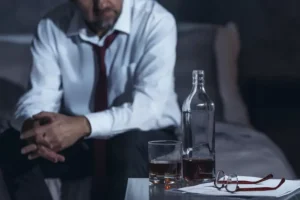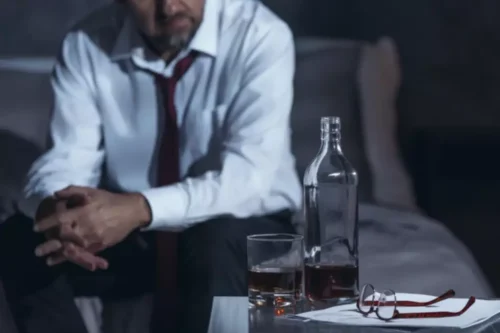
Each of these 50 topics offers valuable insights and coping mechanisms that can group therapy ideas for addiction support recovery from substance abuse. By addressing these topics thoughtfully and encouraging open discussion, group therapy sessions can provide members with the tools, knowledge, and support they need to thrive in their recovery journey. This article explores 50 substance abuse group activities designed to empower individuals in their recovery journey. From self-care practices to communication exercises, these activities encourage positive change, help build essential skills, and strengthen support networks. Experiential activities for group therapy offer dynamic ways to engage individuals in addiction recovery, helping them process emotions, build connections, and foster personal growth. From creative expression to trust-building exercises, these experiential therapy activities can unlock deeper layers of healing and encourage long-lasting recovery.
- As we delve into the realm of addiction recovery, we’ll explore innovative approaches that are reshaping the landscape of group therapy and support.
- The path to sobriety is rarely a solitary one, and the power of collective healing cannot be overstated.
- Individual therapy requires a substantial financial commitment, as sessions are conducted one-on-one with licensed professionals, making it expensive and potentially limiting access for some individuals.
- Participants who manage their emotions and reactions can navigate recovery challenges more effectively.
- These therapies focus on building coping skills, reframing harmful thought patterns, and improving emotional resilience to support long-term recovery.
- Therapists teach clients skills to recognize high-risk situations, cope with cravings, and plan responses.
Relapse Prevention Strategies
This discussion focuses on helping members identify, understand, and express their emotions constructively. Learning to manage emotions healthily supports mental stability and reduces the risk of relapse. Resilience is the ability to bounce back from challenges, making it essential for those in recovery. This topic explores how to develop resilience through positive thinking, stress management, and maintaining optimism. In this activity, members create individualized relapse prevention plans, identify their specific warning signs, and develop strategies to seek support before a potential relapse.

Communication Skills
- Role-playing is often used in these sessions to help group members enhance empathy and understand situations from another’s perspective.
- Art therapy is a creative way for individuals to express emotions that may be difficult to verbalize.
- Self-care is important in recovery as it teaches an addict how to make themselves feel good and how to provide themselves with the respect they deserve.
- Our effective approach can assist you in finding the ideal treatment program for yourself or a loved one.
- Participants can confront triggers and practice coping skills in immersive, controlled environments, all from the safety of a group setting.
These sessions allow individuals to externalize their internal struggles, often revealing insights that verbal communication alone might miss. Although the exercises mentioned earlier can be conducted for adolescents, here is a list of fun and engaging CBT group activities for youth. These are designed to help teens and young ones feel supported in their recovery journey. You can also encourage clients to replace addiction with healthy hobbies and transformative activities to uplift the recovery experience. Those whose keys fit into the lock can sit together and discuss their challenges and offer insights into the recovery journey. These groups offer a haven for members to openly discuss their struggles, triumphs, and setbacks without fear of judgment.

Beginner Musician Tips for Learning Guitar

By using drawing, painting, or collage-making, members can explore feelings they may find hard to verbalize, allowing for a therapeutic release and greater self-awareness. Therapy costs in the Miami-Fort Lauderdale-West Palm Beach area reach up to $250 per session, as reported by SimplePractice in “The Average Cost of Psychotherapy Session by State” (2020). Many clinics, including Olympic Behavioral Health, also offer sliding scale fees or payment plans, enhancing affordability and accessibility for those seeking addiction treatment. Group therapy is not just about focusing on the negative aspects of addiction. Often, this begins with discussing what gratitude is, what one’s grateful for, and why they’re grateful. Physical health is a popular replacement for addiction that many take advantage of.

Whether it’s serving meals at a local shelter or participating in neighborhood clean-up efforts, these activities help rebuild self-esteem and create positive connections within the community. Cooking and nutrition workshops serve up a healthy dose of self-care and practical life skills. Learning to prepare nutritious meals can be a form of therapy in itself, not to mention a valuable skill for maintaining overall health.
Crack Addiction Recovery: Effective Strategies for Overcoming Dependence

Writing a letter to a loved one allows members to articulate their commitment to recovery and strengthen their support network. This activity can bring clarity, reinforce personal resolve, and foster understanding with those who matter most. Guide members through a visualization exercise where they imagine themselves succeeding in recovery, reinforcing a positive outlook and boosting self-belief. Through role-playing exercises, members are encouraged to see situations from others’ perspectives, which fosters compassion for themselves and others, enhancing social bonds within the group.
Clients participating in both types of therapy experience higher treatment retention rates https://ecosoberhouse.com/ and more consistent recovery outcomes, making this dual approach an effective strategy for lasting sobriety. Using visualization techniques, individuals can create mental images of their desired life, which aids in promoting a positive mindset and resilience. Guided journaling provides structure, helping participants focus on specific aspects of their recovery journey and promoting clarity. Journaling exercises are a powerful tool for processing emotions and gaining self-awareness. Writing in a journal allows individuals to articulate their recovery challenges and achievements, facilitating deeper self-understanding and emotional processing. Providing culturally relevant resources helps community groups foster a sense of belonging and support among individuals in recovery.
CBT Group Therapy Near Me In Fair Lawn, New Jersey
Next, therapy sessions focus on building skills for emotion regulation, coping strategies, and relapse prevention. Group therapy is a form of psychotherapy where a trained therapist facilitates a therapeutic session involving a small group of individuals who share similar emotional or psychological concerns. These group sessions provide a supportive and confidential environment for participants to discuss their challenges, express their feelings, and gain insights into their own experiences and behaviors. Group therapy can focus on various issues, such as anxiety, depression, addiction, grief, or interpersonal difficulties. Group therapy is an essential part of addiction recovery, providing a safe space for individuals to share their experiences, gain support from peers, and develop healthier coping strategies. While traditional talk therapy plays a vital role, experiential activities for group therapy offer a dynamic way to engage participants on a deeper, emotional level.
- Building strong support systems through peer networks, family involvement, and community-based groups is essential for long-term sobriety.
- Addiction recovery groups have been a staple in the rehabilitation process for decades, offering a safe haven for those grappling with substance abuse disorders.
- By injecting a dose of enjoyment into the process, we’re not just sugar-coating the bitter pill of addiction; we’re creating an environment where healing can flourish organically.
- We previously posted a list of 60 substance abuse group therapy activities to give readers an idea of what kinds of topics they might encounter during a theme/support group.
- Individual therapy is very important in addiction treatment, offering clients personalized strategies to address the psychological and emotional factors that drive substance use.
Understanding Emotions
These activities support the development of healthier coping skills and enhance emotional healing, marijuana addiction contributing to long-term sobriety and overall well-being. Including family members in the treatment process can enhance recovery outcomes and strengthen relationships. Family involvement helps rebuild trust and communication, creating a more supportive environment for the individual in recovery.
- Mindfulness meditation guides members to stay present, reducing stress and anxiety.
- Community-based groups often focus on shared experiences within specific cultural contexts, improving engagement in recovery.
- Our caring admissions navigators are available 24/7 to answer your questions about what to expect at rehab, levels of addiction treatment, and how to start the rehab admissions process.
Virtual reality exposure therapy sessions are pushing the boundaries of traditional treatment methods. Participants can confront triggers and practice coping skills in immersive, controlled environments, all from the safety of a group setting. Stress management and coping skills training are essential components of any comprehensive recovery program. These workshops equip participants with a toolkit of strategies for dealing with life’s challenges without resorting to substance use. From deep breathing techniques to cognitive restructuring exercises, these skills are practiced in a supportive group setting before being applied in the real world.
